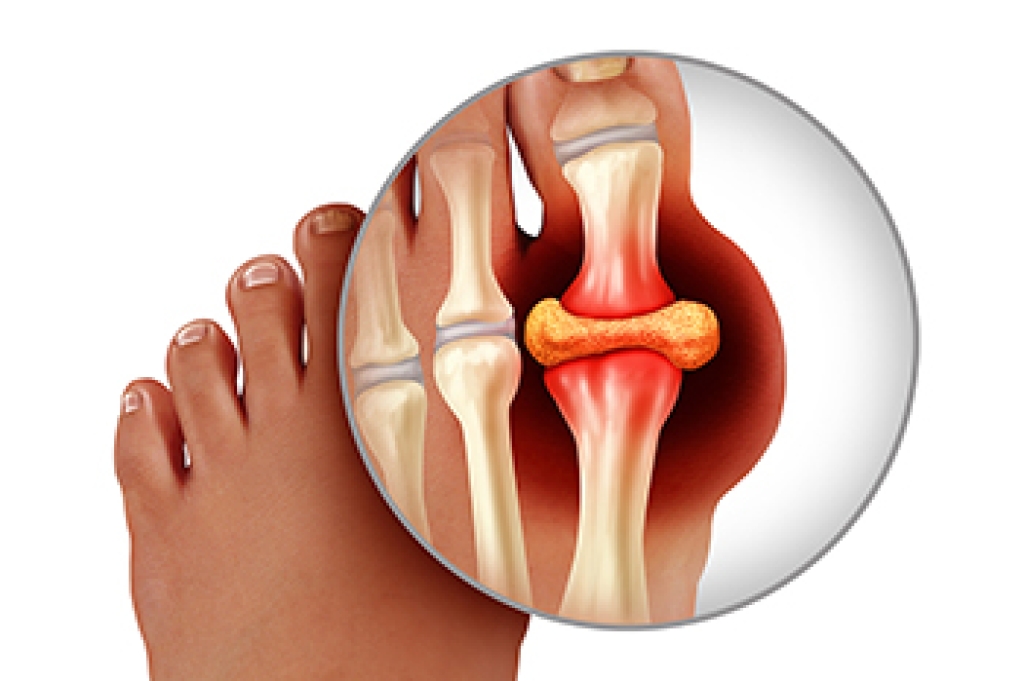
Gout is a type of inflammatory arthritis caused by the buildup of uric acid crystals in the joints. It commonly affects the feet because these joints are under constant stress and are more prone to crystal accumulation, especially in the big toe. Symptoms often include sudden severe pain, swelling, redness, warmth, and stiffness that may limit walking and daily activities. Gout can be influenced by lifestyle and medical factors such as being overweight, high cholesterol, high blood pressure, and kidney disease. Relief often includes lifestyle adjustments like improved diet choices, hydration, and weight management to reduce flare ups. A podiatrist can evaluate foot involvement, relieve pain, protect joint function, and recommend footwear or orthotics to reduce stress. If you have symptoms of gout, it is strongly suggested that you schedule an appointment with a podiatrist who can help you to manage this painful condition.
Gout is a painful condition that can be treated. If you are seeking treatment, contact Philip C. Caswell, DPM from Family Foot & Ankle Care. Our doctor will treat your foot and ankle needs.
What Is Gout?
Gout is a form of arthritis that is characterized by sudden, severe attacks of pain, redness, and tenderness in the joints. The condition usually affects the joint at the base of the big toe. A gout attack can occur at any random time, such as the middle of the night while you are asleep.
Symptoms
- Intense Joint Pain - Usually around the large joint of your big toe, and it most severe within the first four to twelve hours
- Lingering Discomfort - Joint discomfort may last from a few days to a few weeks
- Inflammation and Redness -Affected joints may become swollen, tender, warm and red
- Limited Range of Motion - May experience a decrease in joint mobility
Risk Factors
- Genetics - If family members have gout, you’re more likely to have it
- Medications - Diuretic medications can raise uric acid levels
- Gender/Age - Gout is more common in men until the age of 60. It is believed that estrogen protects women until that point
- Diet - Eating red meat and shellfish increases your risk
- Alcohol - Having more than two alcoholic drinks per day increases your risk
- Obesity - Obese people are at a higher risk for gout
Prior to visiting your podiatrist to receive treatment for gout, there are a few things you should do beforehand. If you have gout you should write down your symptoms--including when they started and how often you experience them, important medical information you may have, and any questions you may have. Writing down these three things will help your podiatrist in assessing your specific situation so that he or she may provide the best route of treatment for you.
If you have any questions, please feel free to contact our office located in Sparta, NJ . We offer the newest diagnostic and treatment technologies for all your foot care needs.




